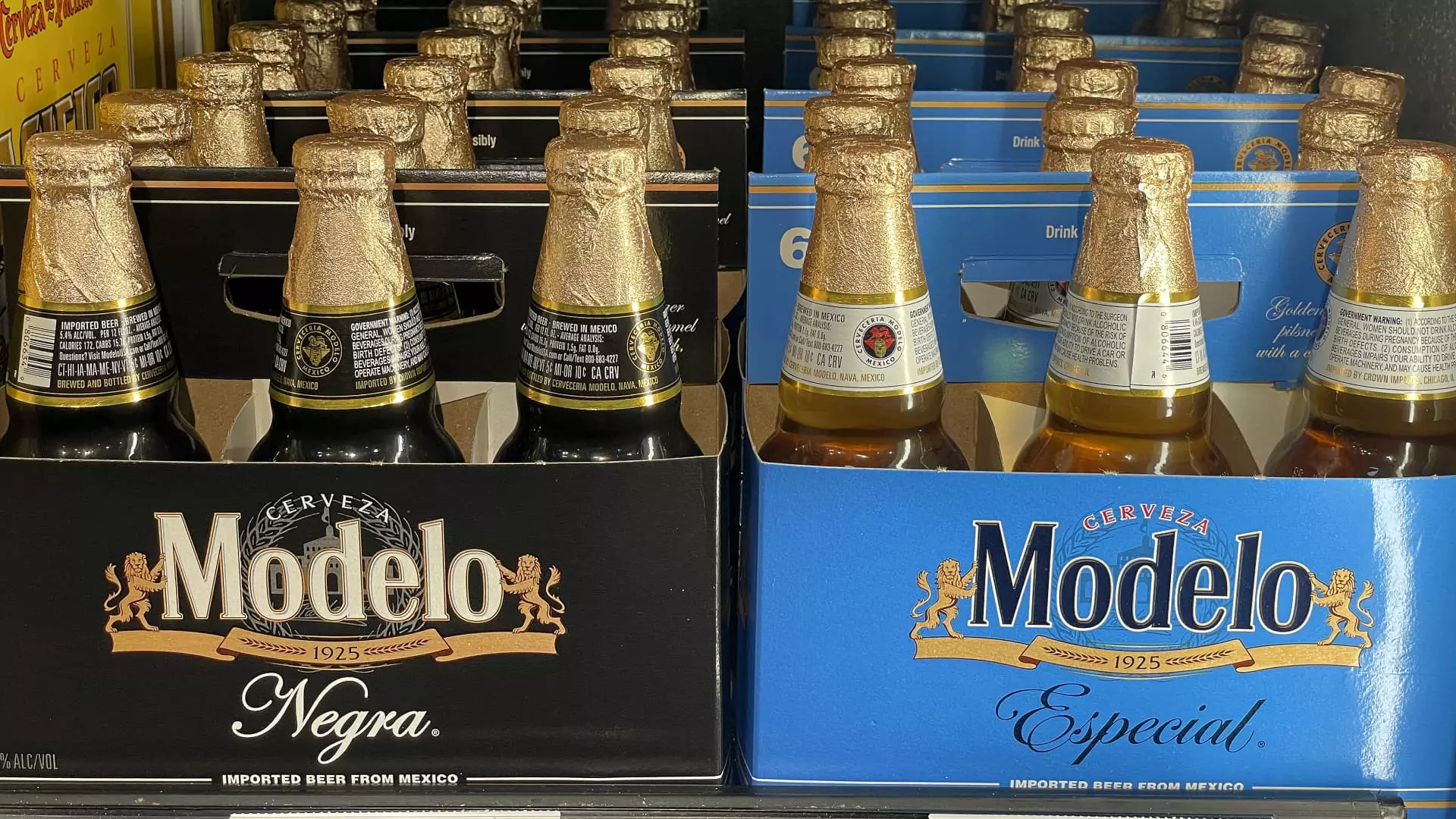The recent downturn in Constellation Brands’ sales paint a troubling picture of how political and economic instability can echo through the retail and beverage industries. Despite their robust portfolio, including beloved brands like Modelo, Corona, and Pacifico, the company experienced a 2% decline in revenue, signaling more than just a temporary hiccup. It exposes the deep-rooted vulnerabilities of corporations heavily reliant on specific demographic groups and highlights the broader implications of political policies on everyday consumer behavior.
What stands out starkly is the link drawn between the downturn and the hard-line immigration stance espoused by President Trump. The company’s CEO, Bill Newlands, points to waning Hispanic consumer spending, attributing it to fears surrounding deportations and potential job losses in Latino-centric industries. This correlation, whether explicitly stated or perceived, underscores how socio-political issues can permeate economic fundamentals. It’s not enough for corporations to remain neutral; they are often inadvertently complicit in the sentiment carried by national policy.
Political Climate as an Economic Force
The impact of aggressive immigration enforcement measures, such as ICE raids, goes far beyond the immediate fear among immigrant communities. These actions ripple outward, unsettling economic confidence and disrupting consumer markets. When a significant portion of a company’s customer base feels targeted and insecure, spending diminishes—not because of a waning desire for product, but because of a profound sense of uncertainty about the future.
Constellation’s cautious commentary during their earnings call—avoiding direct attribution to Hispanic consumers—reflects a broader tension. Brands, perhaps wary of political backlash, tread carefully in acknowledging the real, tangible effects of policy on consumption. However, the reality is clear: economic confidence is fragile and heavily influenced by the political atmosphere. When immigrant communities feel vulnerable, it affects industries that historically thrived because of these communities’ loyalty.
The Broader Economic Implications
The decline in beer sales isn’t an isolated incident. Major companies like Coca-Cola and Colgate-Palmolive have also cited reduced demand from Hispanic consumers, confirming a troubling trend across sectors. This phenomenon raises critical questions about how macro-political decisions and societal divisions undermine economic stability and consumer trust.
Furthermore, external factors such as Trump’s tariffs on aluminum have compounded the issue, increasing production costs and squeezing profit margins. It demonstrates that economic resilience depends on a complex web of political, social, and trade policies—each capable of destabilizing markets if mismanaged or driven by polarizing leadership.
Such vulnerabilities should challenge us to reconsider economic strategy and social cohesion. When national policies foster division and distrust, they don’t just harm marginalized communities—they risk undermining the very fabric of economic sustainability, especially for businesses that rely on a broad, inclusive consumer base. The resilience of our economy depends on fostering an environment where confidence isn’t fragile but rooted in stability and fairness—values that seem increasingly elusive in today’s volatile political climate.


Leave a Reply